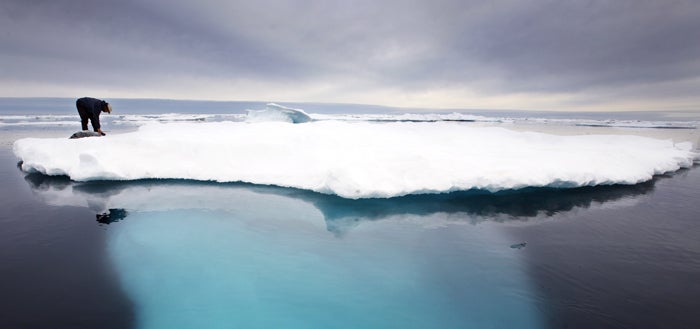Last-ditch bid to avert Arctic free-for-all

Denmark will today launch an effort to calm the scramble for the Arctic, bringing together the five coastal nations competing for what are believed to be the largest unclaimed reserves of oil and gas left on the planet.
The gathering in Greenland begins in the shadow of a new "oil shock" as soaring prices force governments to reassess their energy policies and heat up already feverish interest in who owns the seabed beneath the Arctic Ocean. The issue has already been pushed to the fore as rising temperatures melt ever larger sections of the polar ice sheet and scientists warn that climate change could result in sea ice cover disappearing altogether within a generation.
The Danes hope the meeting will see all parties agree to a UN-brokered solution rather than a free-for-all over possible oil riches and commercially valuable sea routes such as the recently thawed North West Passage.
So far the race for the Arctic has been limited to posturing, with Russia deploying an experimental submarine to plant a flag on the seabed close to the magnetic pole, while Denmark has pinned its colours to the frozen Hans Island and Canada has conducted military exercises further into the frozen north than ever before. Both Norway and the US are thought to be considering their own challenge for sovereignty under the UN Law of the Seas convention, meant to govern territorial claims over the continental shelf.
The argument over who owns the Arctic has come down to a technical squabble over which country is best connected to one of several undersea mountain ranges that extend towards the North Pole. Under the 1982 UN convention, coastal states own the seabed beyond existing 200 nautical mile zones if it is part of a continental shelf of shallower waters.
"The Law of the Sea Convention will basically give most of the Arctic Ocean bed to the five countries, but it is also likely that there will be two smaller areas that will not be controlled by any country," said Lars Kullerud, president of the University of the Arctic, an international co-operative network based in the circumpolar region.
Despite shrinking ice cover, it will be decades before it is possible to extract oil from areas beyond the existing territorial waters.
The decision to go ahead with the meeting with only five of the eight Arctic nations, excluding Sweden, Iceland and Finland has prompted an angry response, as has the absence of a voice for the Inuit – the indigenous people who make up the majority of the people within the Arctic Circle.
Inuit groups and environmentalists have led calls for an international treaty modelled on Antarctica, which bans all military activity and mineral exploitation.
Greenland itself, where the meeting is being held, is still a self-governed province of Denmark, and any hopes it has for full independence would be based on potential oil revenues, further complicating any hopes of rescuing the polar region from potentially devastating commercial exploitation.
Denmark has urged all of those involved to abide by UN rules on territorial claims and hopes to sign a declaration that the international body would rule on the disputes.
Join our commenting forum
Join thought-provoking conversations, follow other Independent readers and see their replies
0Comments